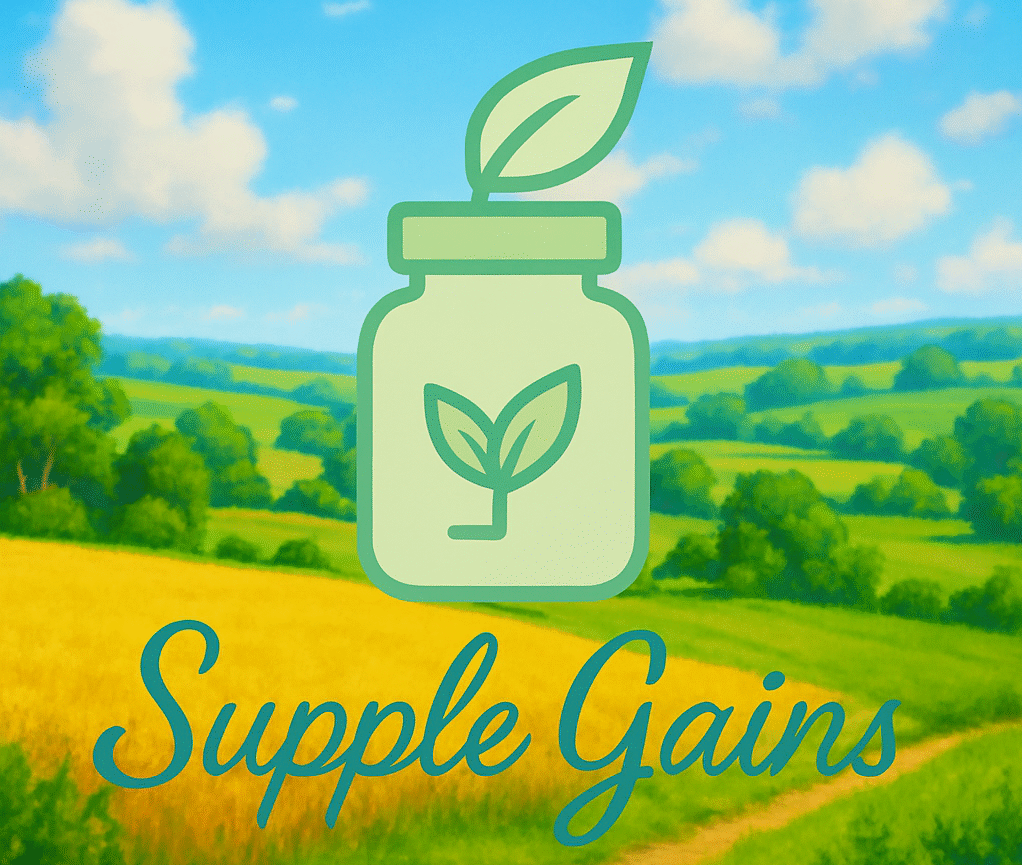If you’ve ever wondered how a book can shake up the way someone thinks about food, especially plantbased diets, you’re in good company.
Plenty of people—including me—have had their mindsets reworked just by reading the right book at the right time.
Some books dig into the health science, others paint a bigger picture about animals or the planet, and a few blend all of that with personal stories that stick with you for years.
If you’re curious about what to read, here are some of the top books that have made a real impact on how readers view plantbased eating.

Why Books Matter for Changing Views on PlantBased Diets
Books have a way of giving you space to process new ideas, whether it’s a stack of footnotes backing up every claim or a raw, personal story about someone’s food transformation.
For people considering, or even just curious about, plantbased lifestyles, books aren’t just sources of recipes.
They’re resources packed with expertise, lived experience, and practical advice.
Some books on plantbased diets get into the science of nutrition, helping readers understand what’s actually happening in their bodies when they change what’s on their plate.
Others bring you along on the author’s personal adventure, letting you see each step and stumble along the way.
And some spell out what going plantbased means for global issues, like animal welfare or climate change.
It’s easy to see why these books change hearts and habits far beyond the kitchen table.
Big Names: Books That Sparked a Movement
Several books have earned their spot on bestseller lists and inspired real conversations about plantbased eating.
Here are a few that pop up repeatedly as gamechangers:
- “The China Study” by T. Colin Campbell and Thomas M. Campbell II
This book breaks down the most allinone study ever conducted on nutrition and health, making a strong case for ditching animal products. Its scientific approach appeals to those who want hard data and clear findings. Readers often say they felt more confident giving plantbased eating a try after checking out these chapters. - “Eat to Live” by Dr. Joel Fuhrman
Combining nutritional advice with recipes and real stories, Dr. Fuhrman explains why a diet rich in unprocessed plant foods fits best for longterm health. People who’ve read it talk about major switches in their energy, weight, and wellbeing from making a few swaps in their weekly meals. - “How Not to Die” by Dr. Michael Greger
This book covers which foods have a record in preventing or reversing common diseases. Dr. Greger supports each claim with studies, which is super useful for anyone looking to back up their choices with research. It’s loaded with simple tips for starting or boosting a plantbased routine. - “Forks Over Knives: The PlantBased Way to Health” by Gene Stone
Inspired by the documentary, the book is packed with approachable stories and readerfriendly explanations. It makes the switch to plantbased eating seem far less intimidating, and realworld testimonials help readers picture how changes might look in their own lives.
Getting Started: Three Common Themes in Books That Change Minds
Through reading countless plantbased books—and talking with others who have—I’ve noticed these books often share some key themes that help people take the leap:
- Digging Into Science
Many transformative books break down complex studies or stats into super readable info, often with graphics or real life comparisons. This helps people understand what exactly changes (in a good way!) when they cut out or cut back on animal products. - Showing the Human Side
Authors sharing their own stories, struggles, and successes is a big part of why their messages connect. It’s much more motivating to hear how someone else handled dinner with family, overcame cravings, or managed eating out. - Offering Easy Steps
Books that give step by step guides, shopping tips, or lists of simple swaps are way more likely to turn curiosity into action. Having actionable advice makes all the difference for beginners, so guides and recipes go a long way.
Stories That Stick: Memoirs and Personal Adventures
Nothing gets the point across like a personal story.
Here are a few memoir style books that have inspired readers by showing the personal side of going plantbased:
- “Eating Animals” by Jonathan Safran Foer
The author explores not just the food on his plate, but what it means for animals, the planet, and future generations. Many readers have said this book is what finally pushed them to see their food choices differently. - “Finding Ultra” by Rich Roll
Rich Roll shares his story of going from unhealthy and out of shape in middle age to becoming an elite endurance athlete, all powered by plants. His open honesty about the challenges and upsides is relatable to anyone feeling stuck in their current routine. - “The Plantpower Way” by Rich Roll and Julie Piatt
This book is filled with recipes but also personal reflections and practical advice. The authors aim to make plantbased living fun, familyfriendly, and accessible, showing that you don’t need to be a professional athlete to see the benefits.
Things You Should Probably Think About Before Fully Switching to PlantBased
Jumping all in with plantbased eating is a significant step, and these books tend to prep readers for a few common hurdles and things to consider:
- Nutrient Gaps
Books worth their salt explain potential shortfalls like vitamin B12, iron, and omega3s. They offer smart ways to fill these gaps, from supplements to food swaps, and always encourage chatting with a healthcare pro if you’ve got questions. - Shopping and Meal Prep
Stocking the pantry or getting meals ready can feel daunting. Many books include shopping lists, sample meal plans, or quick recipes to make that first grocery trip far less stressful. Sizeable guides like “PlantBased on a Budget” by Toni Okamoto are practical for people of all cooking skill levels. - Handling Questions from Family and Friends
Switching diets can bring up questions or even pushback from friends or family. Many books talk readers through having open, positive conversations, and some advise “show, don’t tell”—letting your results speak for themselves. - Managing Cravings or Social Situations
Tips for handling restaurant menus, parties, or just cravings for old favorites are a staple in the better books. They provide swap ideas (hello, vegan pizza!) so you’re not left missing your comfort foods.
Nutrient Gaps
Taking on a plantbased diet means paying attention to things like protein, iron, B12, and healthy fats.
Books like “Becoming Vegan” by Brenda Davis and Vesanto Melina list everything in simple terms, making it easier to know what to watch for and how to meet your needs with a bit of planning.
Meal Prep & Grocery Shopping
Guides such as “The Engine 2 Diet” by Rip Esselstyn and “PlantBased on a Budget” strip away the idea that plantbased eating is expensive or timeconsuming.
Quick recipes, detailed shopping tips, and cost saving hacks show how you can fill your cart and your plate without a big dent in your wallet.
Advanced Tips from PlantBased Authors
Once you’re past the basics, plantbased authors often offer clever ways to take things further:
Understand Food Labels:
Get used to reading ingredient lists for sneaky animal products, processed oils, and other additives.
Practice makes perfect, and many books walk you through this one step at a time, showing with examples what to look for when grocery shopping or choosing snacks.
Find Community:
Joining plantbased online groups, cooking classes, or even book clubs makes the adventure easier and a lot more fun.
Some authors point readers to local meetups, nonprofit organizations, or vegan festivals.
Building a network means you’ll always have someone to swap recipes with or troubleshoot tricky situations around food.
Experiment in the Kitchen:
Trying new recipes, cuisines, and flavors is encouraged in books like “Thug Kitchen” or “Isa Does It” by Isa Chandra Moskowitz.
If you keep your meals exciting, you’re likely to stay on track with your goals.
Some books even highlight international dishes or challenge you to cook a new plantbased recipe each week.
Stay Informed:
The world of plantbased nutrition is always evolving, so it helps to keep reading, watch documentaries, or follow blogs.
Some books suggest additional reading or share updates to ensure readers are up to date and armed with the best advice as they switch things up.
Some Ways PlantBased Books Have Made an Impact
Besides just the science or personal stories, many of these books stand out because of the way they help readers take real action:
- Health: People mention losing weight, gaining energy, or improving health numbers after reading and applying what’s in these books.
- Environmental Concerns: Books like “We Are the Weather” by Jonathan Safran Foer show how dietary changes can give a boost to the planet.
- Animal Welfare: Seeing behind the scenes of animal agriculture impacts many readers, as described in titles like “Eating Animals” or “Animal Liberation” by Peter Singer.
- Confidence: Just knowing the “why” behind the change makes it easier to stick with it, especially during tough moments. Some readers find confidence in knowing they’re part of a larger movement toward health and sustainability.
- Community and Support: Many readers say these books inspired them to join plantbased groups online or offline, which has helped them stay consistent and enjoy the ride. Others mention feeling less alone on their journey after seeing so many relatable stories.
Frequently Asked Questions
If you’re still thinking about jumping in deeper, you might have a few of the same questions as everyone else who’s read these books:
Question: Are plantbased diets expensive?
Answer:
Most books agree that plantbased eating can actually save you money if you focus on staple foods like beans, lentils, rice, and veggies.
Processed vegan substitutes can be pricey, but whole foods usually aren’t.
Planning your meals ahead can cut costs even more.
Question: How do I make sure I’m getting enough protein?
Answer:
Guides like “How Not to Die” and “Becoming Vegan” explain how beans, lentils, tofu, and whole grains add protein to your meals.
Most people get plenty without trying very hard, but learning about protein rich foods can put your mind at ease.
Question: Will switching to plantbased be hard socially?
Answer:
Many books break down strategies for social events, eating out, and family gatherings.
Bringing plantbased dishes or checking restaurant menus ahead of time can make these situations smoother.
Being prepared often means more enjoyable social times.
Wrapping Up
Reading the right book at the right time has pushed a lot of readers—from casual skeptics to curious foodies—to rethink what’s on their plate.
Whether you care about health, the planet, or just love a good kitchen experiment, the books on this list are a great starting point for anyone interested in a plantbased diet.
Flipping through their pages could unlock a whole new way of seeing food and feeling better every day.
